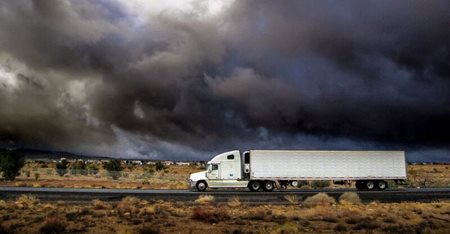An open letter to trucking company management that want to turn their drivers into top earners.
 The driver is the foundation of your trucking company
The driver is the foundation of your trucking company. Sure, a successful trucking company can’t operate without a CEO, salesman, mechanic, billing clerk and dispatcher etc… But you have to look at what is it you do. Are you a billing company? No. Are you a dispatch service? No. Are you a shop? No. You’re a trucking company and you must have professional drivers to get the freight delivered.
I compare it to the infantry soldier in the Army. The entire Army is made of hundreds of thousands of soldiers,
but only 15% of them are Infantry.
The rest of the 85% are there to support the 15%. That’s the way the modern day trucking company should work.
The rest of the employees need to know that they’re employed to support the driver. The driver should be the main focus of a trucking company.
Changes in company culture may be required to put the main focus on the success of the driver. If your company is having trouble with this, they can start by giving the driver incentives to obtain excellence.
Here are my suggestions:
- Incentive compensation programs –set aside portion of profit to return to most valuable assets.
- Fleet or terminal competition - Track and share your revenues and profits between terminals/fleets. This will foster friendly competition.

- Fuel bonuses –share a portion of the savings with everyone who achieves your goal, not just the #1 driver.
- Share each individual driver’s performance numbers within company - Fuel mileage, revenue per mile, cost per mile, weekly mileage, etc..
- Put their name on their assigned truck - this fosters a sense of ownership.
- Set challenging, obtainable goals – If you aim for nothing, you’ll hit it every time.
- The dispatcher/driver relationship is the most important in the company - Put forth every effort to make this relationship thrive and in return, everyone will prosper.
Employees aren’t going to do their very best for an employer unless they’re made to feel like a priority to their company. Even though company drivers don’t own the trucks, they need to feel a sense of ownership with the truck and company. Once that’s achieved, they will perform at a higher level.